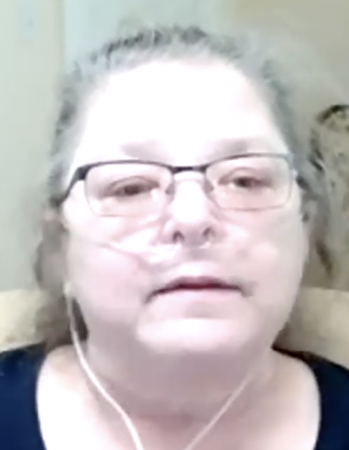As US electric co-ops are called on to provide more services such as broadband and transition to renewables, issues of member control are coming under the spotlight.
Debate over governance and democracy has been raging for several years, with flashpoints including a 2008 scandal at Pedernales Electric Co-op in Texas, which saw its then general manager Bennie Fuelberg jailed for money laundering and theft of more than US$200,000.
The case prompted reform throughout the sector but problems persisted, with South Carolina newspaper The State uncovering allegations of junketing and inflated board salaries at some electric co-ops in the state. As a result, one co-op, Tri-County Electric, fired its board in 2018, at a meeting attended by 1,500 members, and state lawmakers passed legislation requiring greater transparency and regulation.
Such problems prompted apex body NRECA to commission an internal report on co-op governance in 2017. Meanwhile, members of electric co-ops in several states are continuing to challenge long-term incumbents at board elections. These co-ops are not facing the sort of allegations that blighted Pedernales or Tri-County; the issue is more one of member control.
Co-op News caught up with two campaigning members at Powell Valley Electric Co-op (PVEC), which covers Virginia and Tennessee.
Lynn Tobey and Bill Kornrich said that none of their group – PVEC Member Voices – had been involved in the co-op in any way – “we were member owners but we just paid our bills and that was it”– but were moved to challenge the board after it sprayed pesticide on residents’ property. It had a legal right to do so, to keep the area around its power lines clear to avoid outages, but did not notify residents.
Related: Issues facing America’s electric co-ops after the ice storm
“Beehives were destroyed, people and pets became sick, and livestock and gardens were poisoned,” says Ms Tobey. “Members tried to attend the board meeting to complain, but found they were not allowed to without submitting a form. And once they were allowed to address the board they were asked to leave before the business section of the meeting.
“After that we learned a bit more about how electric co-ops worked and it didn’t make sense to us that we were not allowed to attend meetings.”

“After this spraying, people were furious,” said Mr Kornrich – and so they headed to the co-op’s annual meeting. “This is usually a perfunctory affair, with three incumbent board members re-elected every year. None of us had ever been to an AM before, and now this happens. People were so angry that the board agreed to meet with a group of five of us on a monthly basis.”
This produced successful outcomes – securing the right for members to opt out of having their property sprayed, and an agreement to give reasonable notification of spraying.
“Then we just kept going,” says Mr Kornrich. “We said we want open meetings, we want a website where you interact with people – they just had a billing portal at the time.”
Then the member group learned that board members were serving for an average of more than 20 years. PVEC Member Voices says the board appoints the nominating committee for elections – which in turn keeps nominating the same candidates in a “self-perpetuating system”.

This inspired PVEC Member Voices to challenge for three seats at the 2018 board election.
They say the board’s response to these interventions was hostile, with members viewed as an obstructive inconvenience. But the member group stopped short of mounting a legal challenge because, says Ms Tobey, “the relationship between the board and the group was hostile enough … we wanted to be partners”.
“Most of us felt we had made some progress with board,” says Mr Kornrich. “We could now go to meetings; the door had been opened slightly, we were interacting with other personnel besides the CEO, with other people on the staff. Things are less heated these days.”
“Our candidates got about a third of the vote,” adds Ms Tobey. “That was pretty good – we raised awareness.”
The 2018 election produced an increased turnout of 1,200 members, from a total of 30,000 – triple the total of previous years. Studies of electric co-op democracy have identified voter turnout as an issue, with the Institute of Local Self Reliance reporting in 2016 that more than 7% of rural electric co-ops have voter turnouts of less than 10%.
Related: More electric co-ops to join exodus from Tri-State supplier contract
Following on from the voter push, in 2019 the members tried to amend the co-op by-laws to guarantee open meetings.
“They were open already but it was not enshrined in writing,” says Mr Kornrich. “And we wanted recorded minutes available on the website. It was the first time a member-generated by-laws amendment had been submitted and they didn’t like it.”
Mr Kornrich said the co-op board allowed no discussion of the motion and defeated it by arguing that publishing the minutes would be costly.
But efforts are paying off. “Members have increased access to the board and CEO,” says Mr Kornrich. “I had a chat today with the board president about electric school buses, Lynne has spent an hour on the phone with the new CEO talking about broadband.”
Member Voices recently ran a webinar on broadband, he adds, “and two guys came along from the co-op to talk and answer questions, which was invaluable”.
Board meetings are more friendly now, and members can ask questions and make suggestions. “We’re way ahead of the bunch in terms of member involvement when it comes to electric co-ops here,” says Mr Kornrich. “In some it’s hard to get a meeting with the CEO. “Powell Valley and other co-ops refer to member owners as customers, which bespeaks a mindset which is not consonant with the idea of a co-operative. That’s something they need to rework.”
“It seems like co-ops have forgotten their roots,” says Ms Tobey, who got involved with the We Own It Fellowship and found that other co-ops were having similar issues, although she noted that some co-ops in Colorado were “very progressive in terms of member involvement”.
PVEC Member Voters is to continue its push; Mr Kornrich wants to see a campaign for more solar and for member advisory groups to meet the board. And the group has begun loading films of board meetings on its Youtube channel, and has set up its own website and Facebook page.
Powell Valley Electric Co-op has been contacted to discuss some of the points raised.